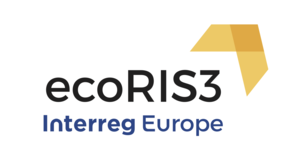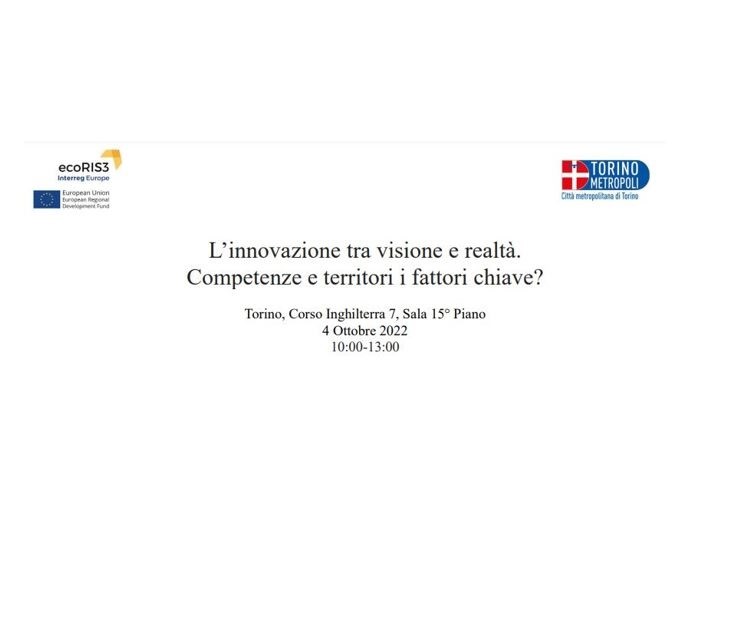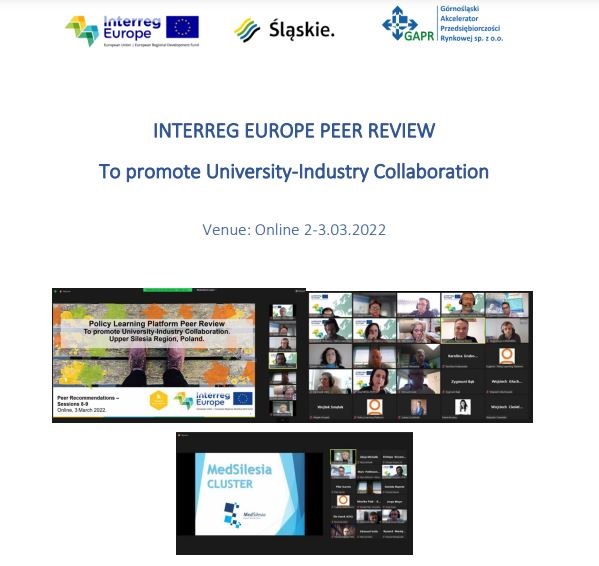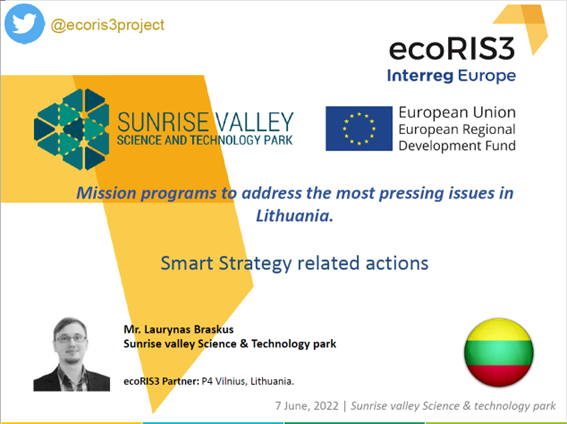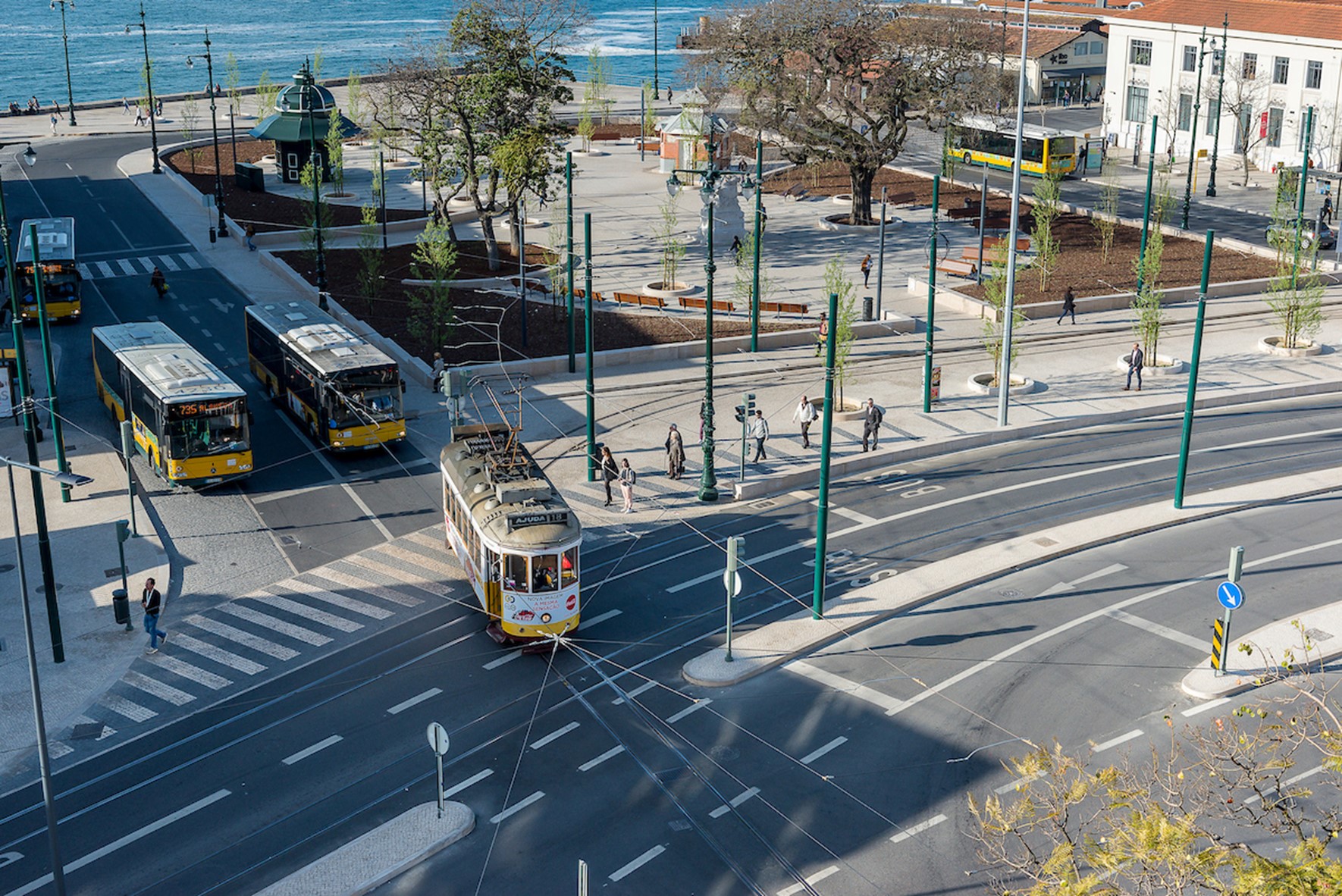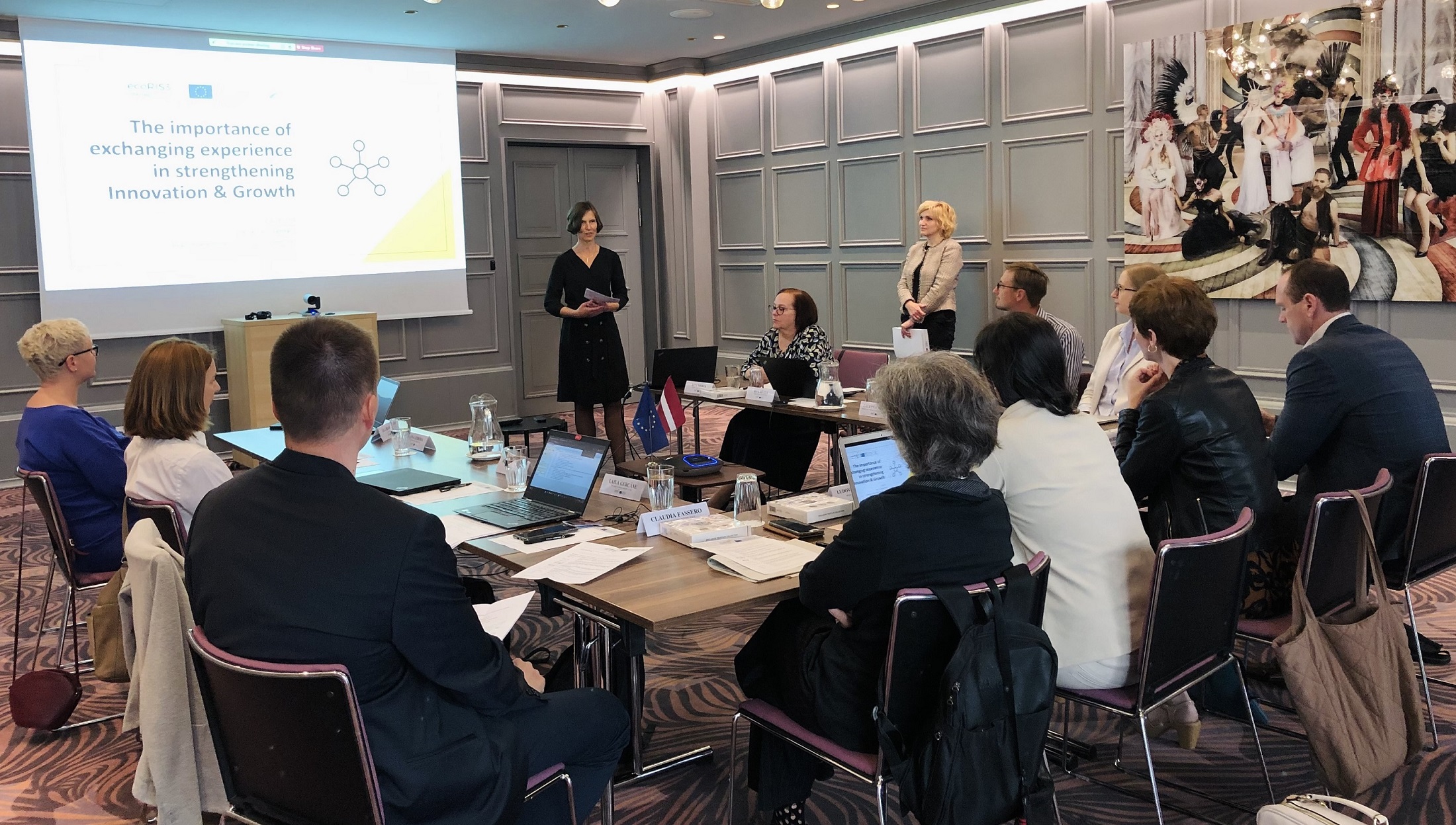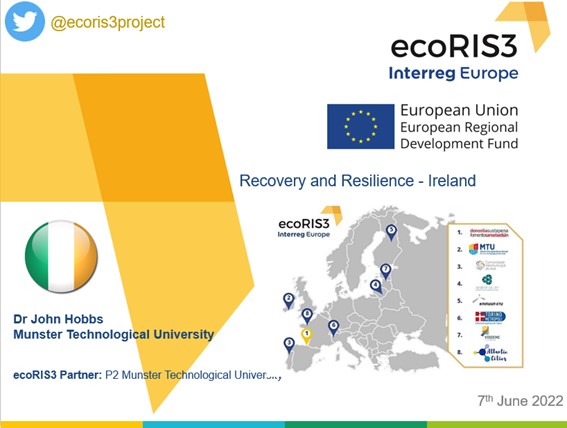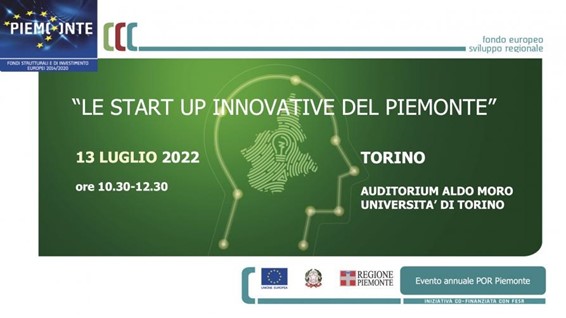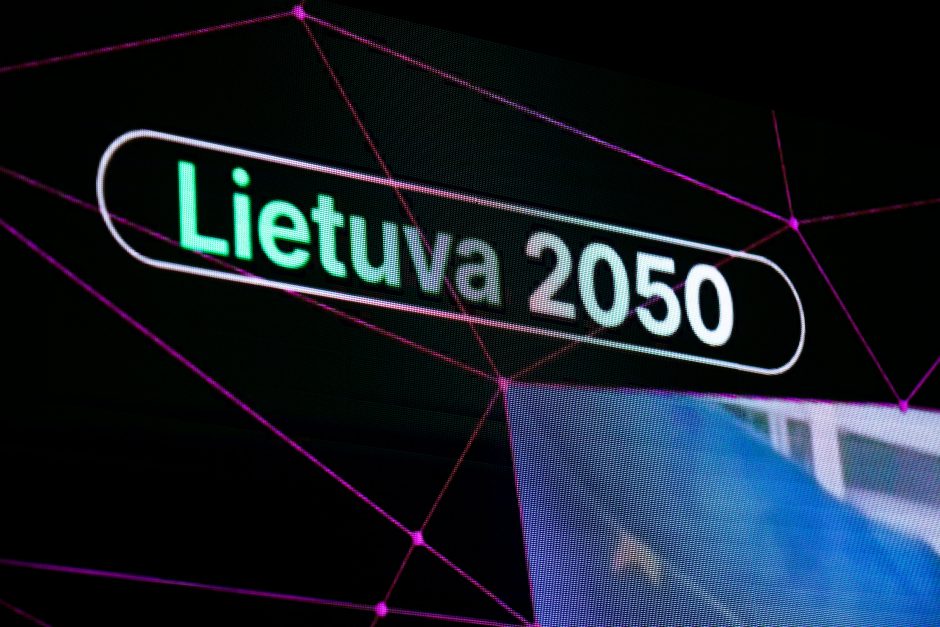On the 17th of November, the ecoRIS3 Project held the webinar ‘Driving Growth through RIS3 Collaboration and Clustering.’ Over 50 participants gained an understanding of the ecoRIS3 project its goals, aims and implementation plans. The session was chaired by Dr John Hobbs, Senior Lecturer at the Cork Institute of Technology as under normal circumstances it would have taken place face to face in Ireland, but this was impossible due to the Covid-19 pandemic and the restrictions all across Europe at present.
Ms Yesenia Otamendi, ecoRIS3 project co-ordinator, from Lead Partner: Fomento de San Sebastian, explained how the ecoRIS3 project has been focused on the key European areas of RIS3 and Clustering and how national government, development agencies and local authorities have been integral in putting these topics back on the table for further focus within national policies – especially in the midst of the Covid-19 response.
The expert interventions and action plan updates are summarised below. Whilst readers can click the links for a PDF of the presentation slides or Recording of the webinar.
Dr Ruslan Rakhmatullin - European Commission, Joint Research Centre
Dr Rakhmatullin provided a broad overview about how RIS3 has been implemented across Europe. As an ex-ante conditionality, each national or regional smart specialisation strategy is in place that to concentrate resources on a limited set of R&I priorities and to maximise the positive impact on growth and jobs. Dr Rakhmatullin showcased numerous regions across the globe developing RIS3 strategies following Europe’s lead.
Karen Coughlan, EU Projects Officer, Southern Regional Assembly
Ms Coughlan provided some perspectives on RIS3 implementation in Ireland since originally published in 2014. The need to tackle the lack of monitoring and evaluation and build a regional collaborative approach via Ireland’s 3 Regional Spatial and Economic Strategies via a ‘bottom-up’ stocktaking exercise were outlined to refresh Ireland’s RIS3.
The second half of the webinar focused on the 7 regional Action Plans developed through the ecoRIS3 project and how these are being implemented.
Dr Xabier Hualde, EU projects Officer, Fomento de San Sebastian
Dr Hualde introduced the Action Plan for Fomento San Sebastian, which was focused on acceleration and support programme to create technology based innovative companies in cooperation with the research and technology centres and sparking entrepreneurship among young students/PHD/Researchers.
Dr John Hobbs, Senior Lecturer, Cork Institute of Technology
Dr Hobbs outlined the on-going work in Ireland in the area of clustering development to connect academia and industry and to utilise clusters as the mechanism for delivering RIS3 and innovation diffusion across the industrial ecosystem in Ireland, along with co-working spaces as a mechanism for connecting stakeholders.
Vera Soares, Senior International Relations Officer, CIM do Ave
Ms Soares outlined the Action Plan implementation in North Portugal, which focuses on promoting and supporting innovation and technology transfer. Whilst Improving the visibility of innovation as a driver to foster local and regional innovation via improving governance mechanisms.
Laurynas Braskus, Innovation Consultant, Sunrise Valley
Mr Braskus outlined the Action Plan for Lithuania, which focuses on increasing business and science/education cooperation initiatives. Including a few different programmes which can engage different stakeholders e.g. Experiment LT, Industry Digitalisation LT, InoVouchers LT and InoStart LT.
Tuomo Tahvanainen, Managing Director, Kainuun Etu Oy
Mr Tahvanainen outlined how the ecoRIS3 action plan is being integrated into the Kainuu RIS3 strategy in Finland, with some specific examples and proposed initiatives for the development of a mining cluster in Kainuu.
Claudia Fassero, Head of EU & International Projects Unit at Metropolitan City of Torino
Ms Fassero outlined the focus of the Piedmont Action Plan on the 1) Strategic direction for local RIS3 entrepreneurship ecosystem, 2) Research, innovation and territory interaction promotion and 3) coordination of initiatives in support of the creation and scale-up of micro-enterprises and start-ups in the e-health sector.
Ilona Platonova, Innovation Broker at Vidzeme Planning Region
Ms Platonova outlined the Latvian action plan which has been developed to promote innovation project management in support instruments and stimulate cooperation among SMEs and science and to stimulate development of science-based product development. There is a further focus on co-creation in terms of implementation.

Tamara Espiñeira, Secretary General, Atlantic Cities
The webinar closed with an intervention from Ms Espiñeira who shared with participants some tips and pointers on how to Connect with EU Innovation Opportunities and build consortia of scale and reputation.
For further info e-mail [email protected]
